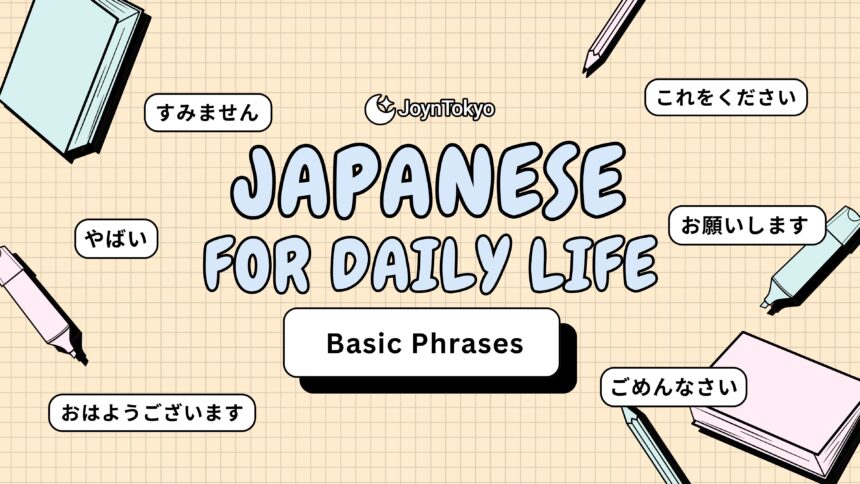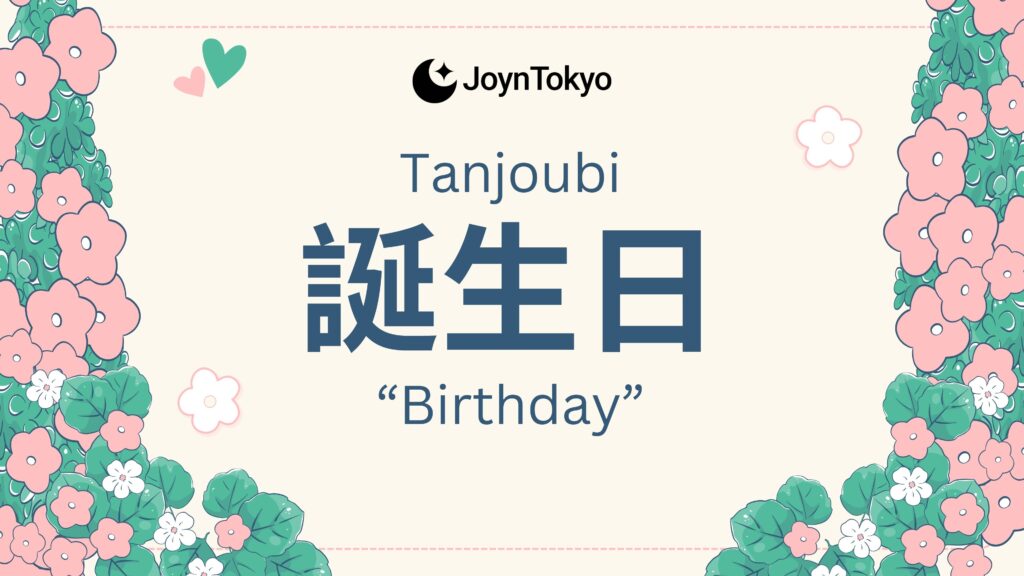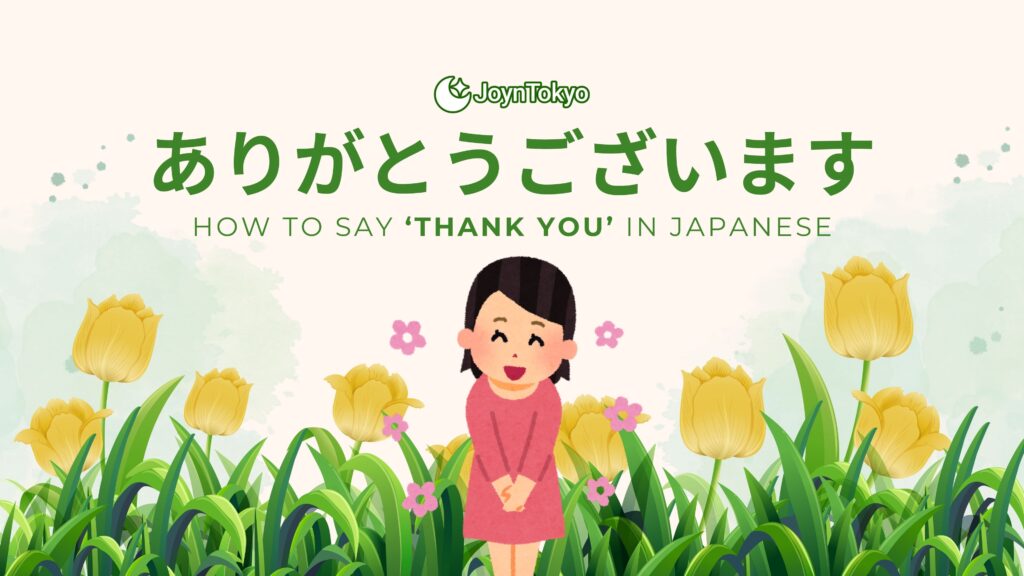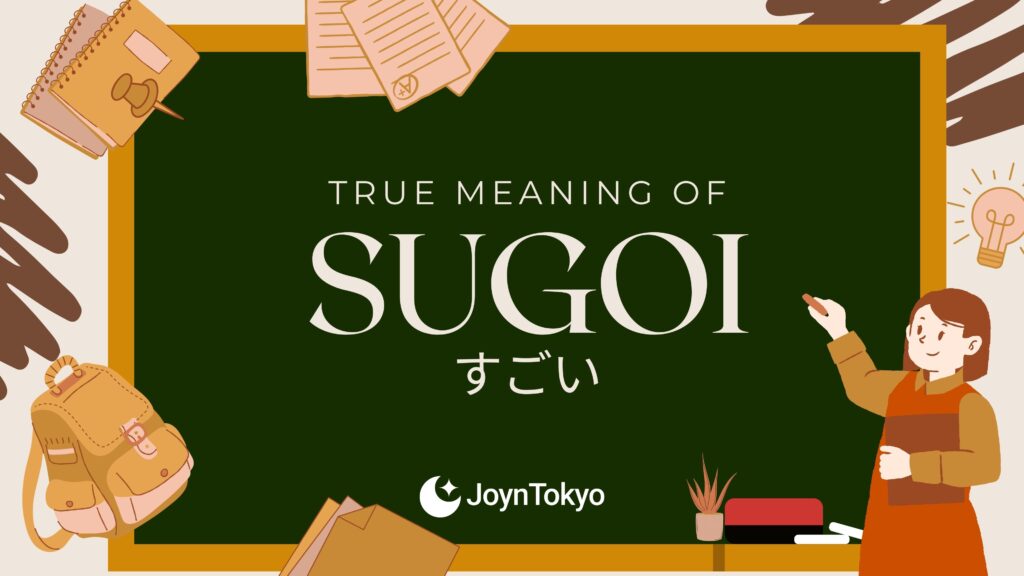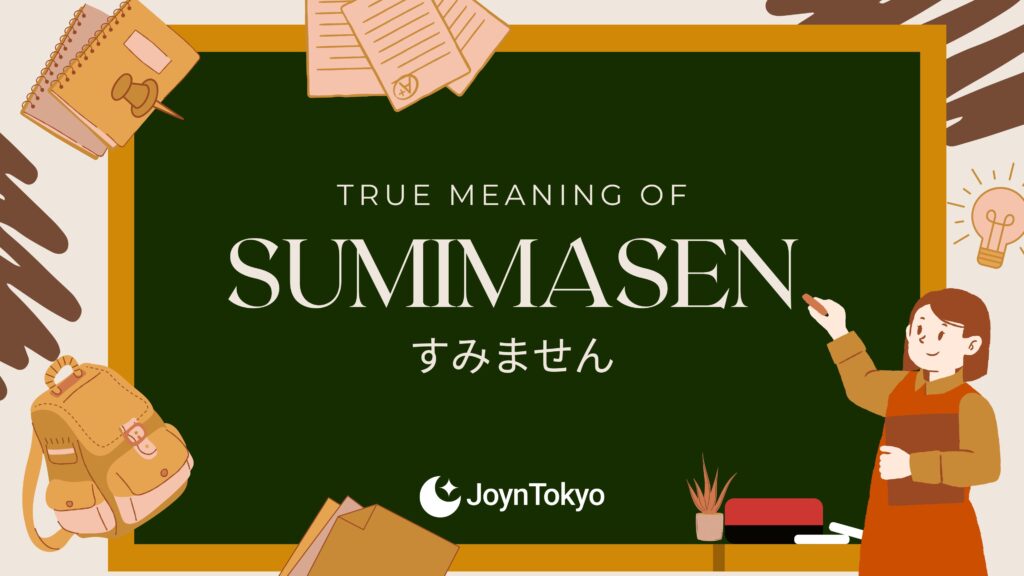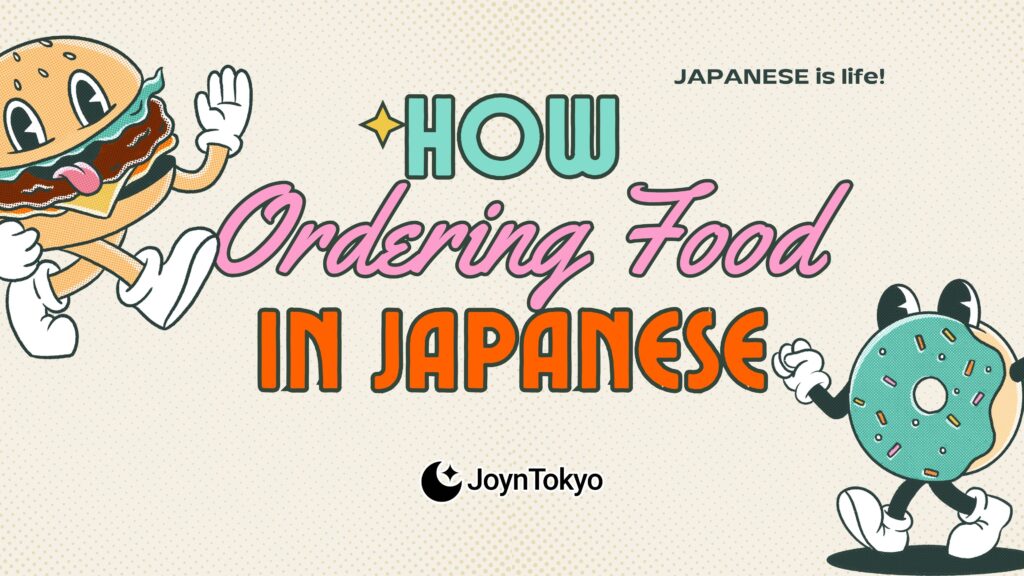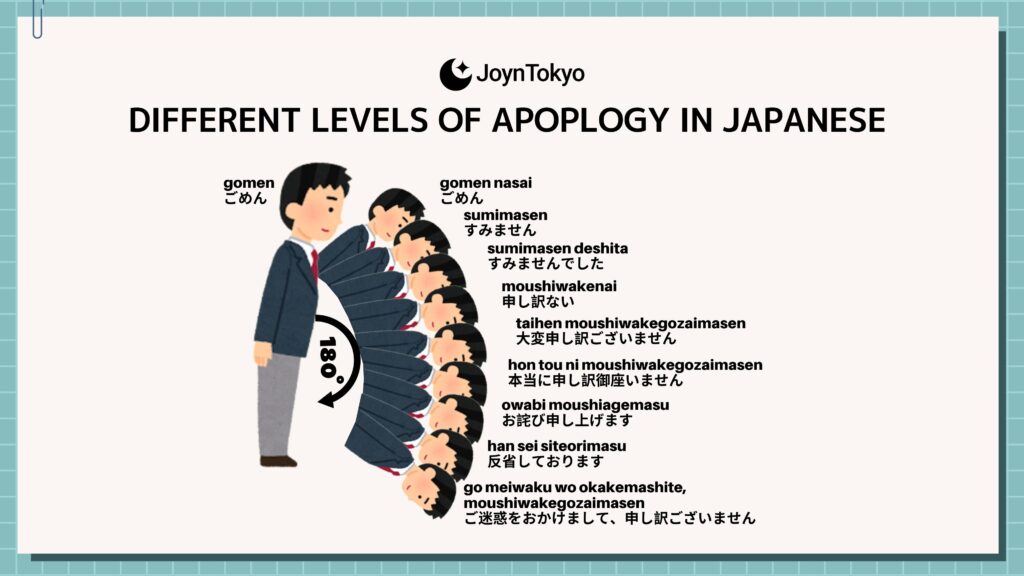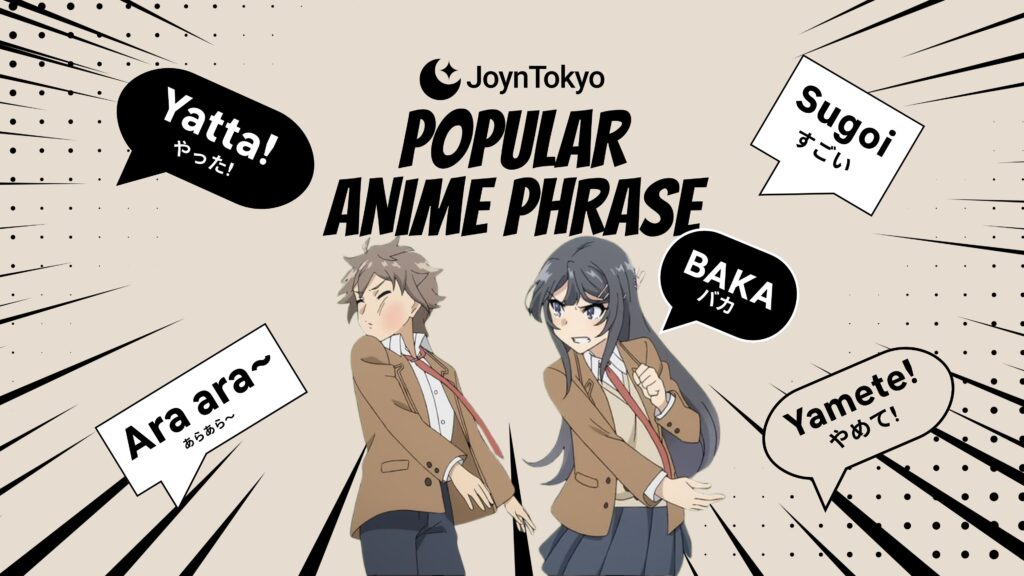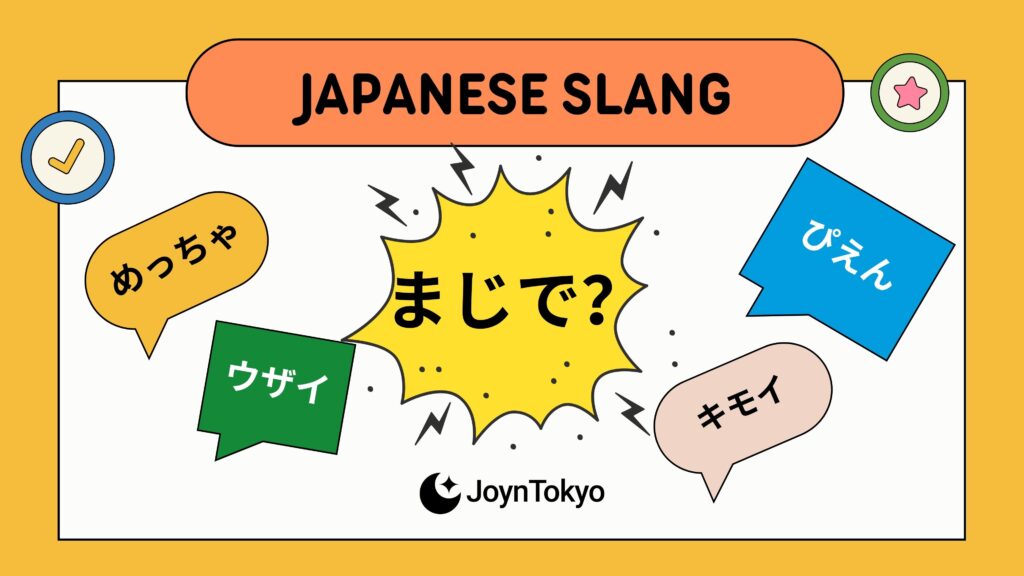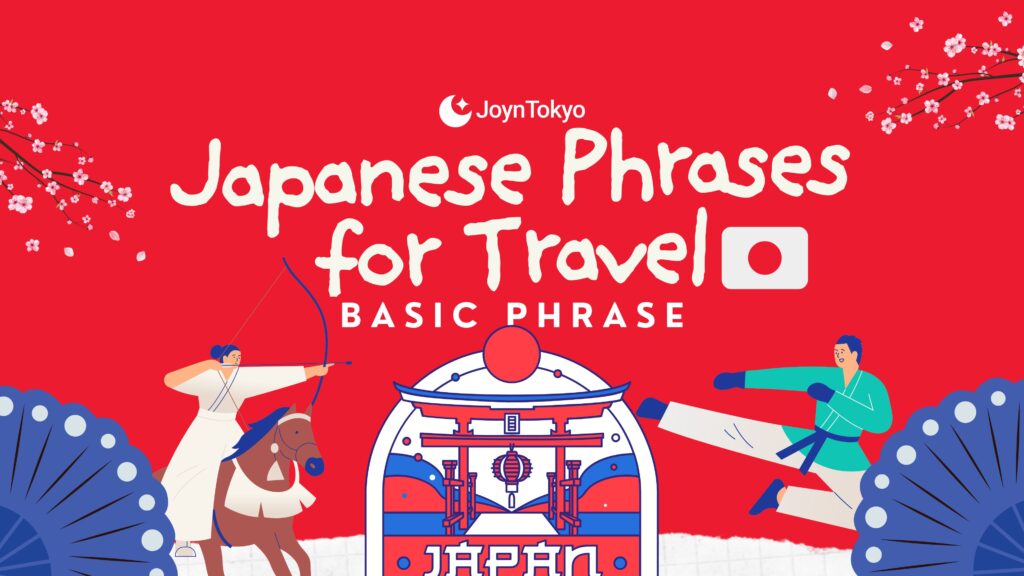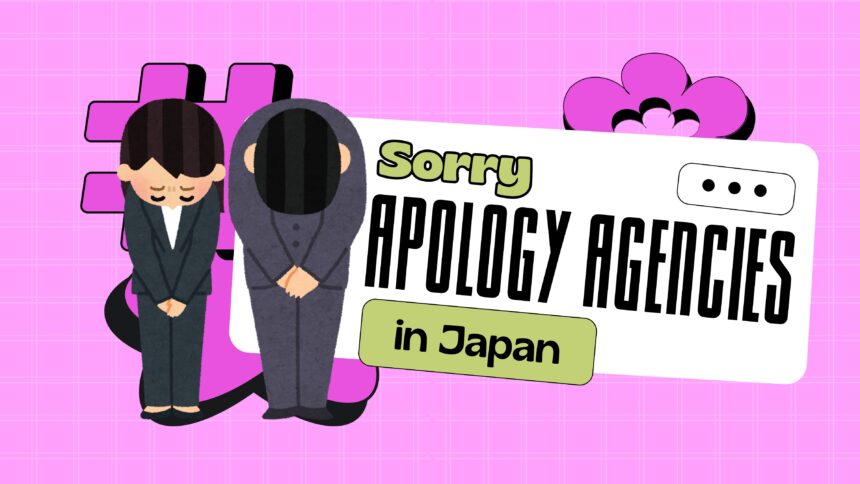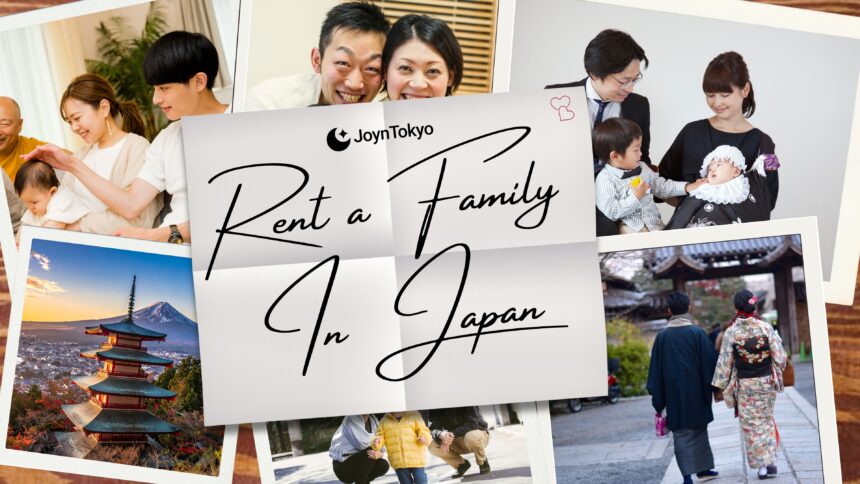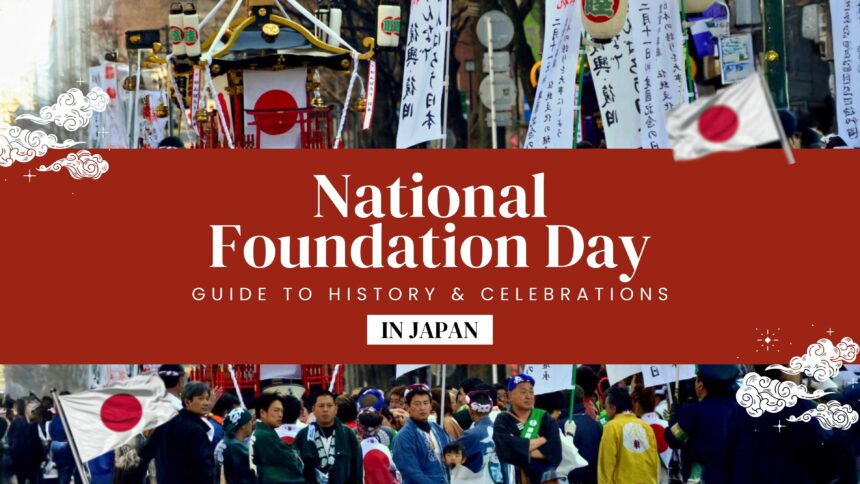Learning Japanese phrases is one of the fastest ways to connect with locals, travel smoothly, and enjoy cultural experiences more deeply. While grammar can be complex, set expressions allow you to communicate effectively in everyday situations. This guide introduces the most essential categories of Japanese phrases, with links to in-depth articles when you want to master each expression.
How to Say Happy Birthday in Japanese
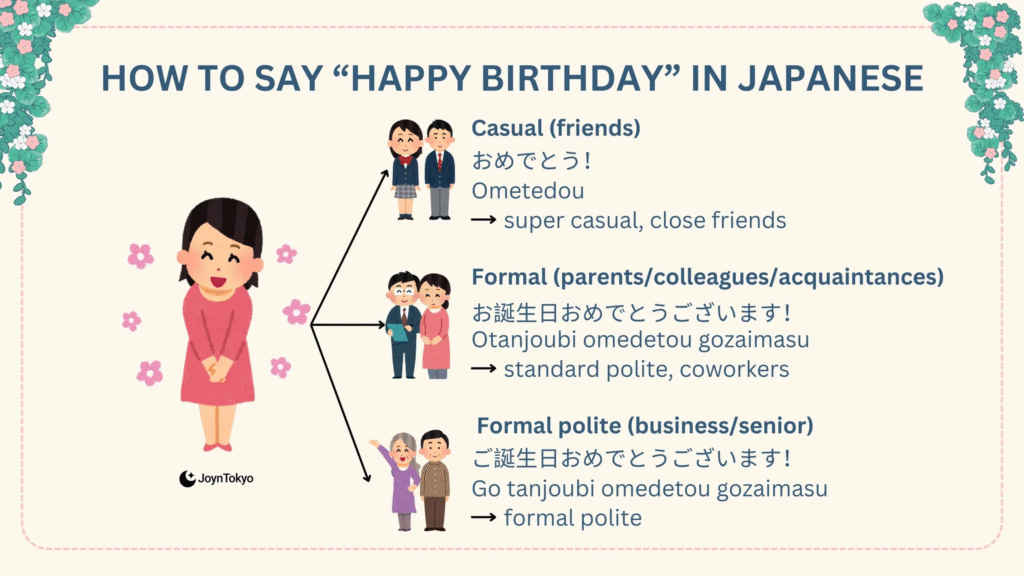
When congratulating someone on their birthday, the expression changes depending on closeness and respect. Among friends or younger people, a simple phrase works fine, while in professional settings or when addressing elders, a more formal version is expected. This balance reflects the importance of hierarchy and politeness in Japanese communication.
Casual phrase:
“Otanjoubi omedetou” (お誕生日おめでとう) — Happy Birthday
Polite phrase:
“Otanjoubi omedetou gozaimasu” (お誕生日おめでとうございます) — Happy Birthday (respectful)
Read More
Ways to Say Thank You in Japanese
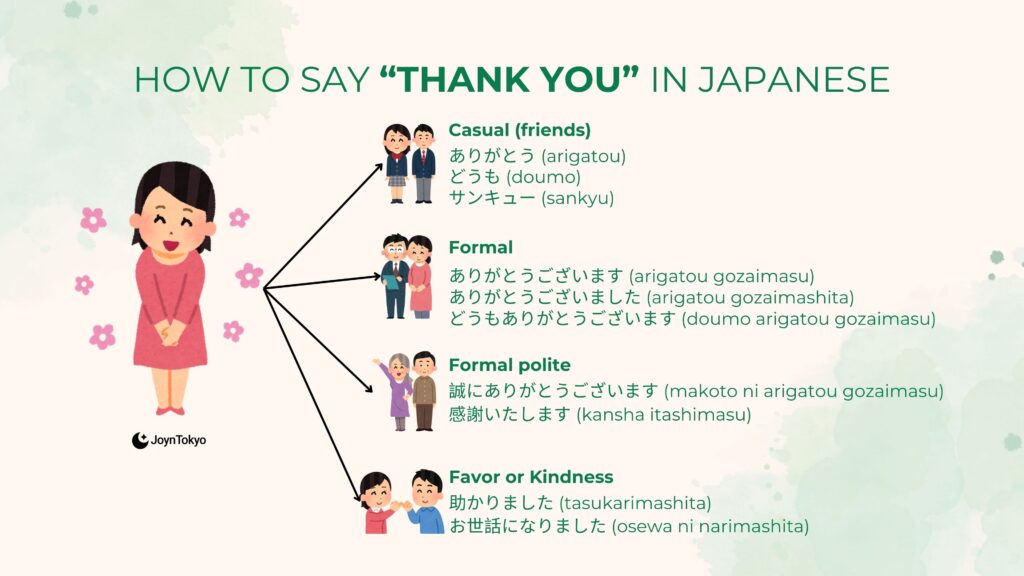
In Japan, expressing gratitude through language is a daily necessity, not just a social nicety. Casual thanks are used with friends or peers, while more formal variations are needed in public, business, or customer interactions. Special phrases also exist for specific moments, such as finishing a meal, which reflects how deeply gratitude is tied to culture.
Casual phrase:
“Arigatou” (ありがとう) — Thanks
Polite phrase:
“Arigatou gozaimasu” (ありがとうございます) — Thank you very much
Read More
Start Your Own Japan Journey With Expert Guidance
Most people never make it to Japan because the start is confusing and tiring. Wrong visa route. Underestimated budget. Months lost to confusion.
Get personalized support for your new life in Japan.
Book Your FREE Consultation✓ 500+ Bookings ✓ English-speaking Relocation Support Experts
Common Japanese Words for Excitement and Surprise
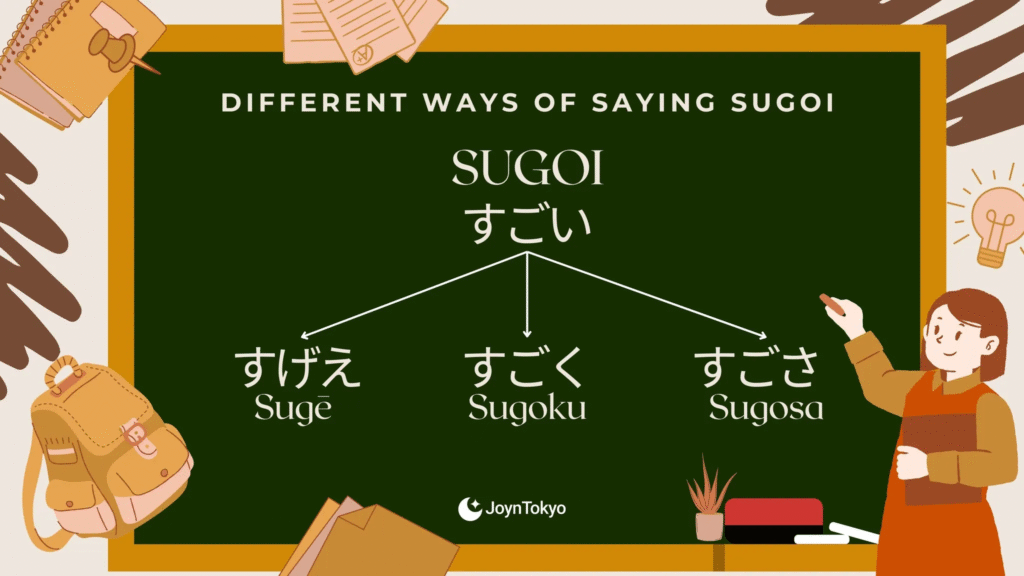
Reacting to something surprising in Japanese often involves the word sugoi. It is short and expressive, but its variations carry different tones — some casual, some slangy, and others more neutral and polite. This makes it useful in a wide range of situations, from chatting with friends to showing genuine admiration in formal contexts.
Casual phrase:
Sugee! (すげえ!) — Awesome! (slangy, informal)
Polite phrase:
Sugoi desu ne! (すごいですね) — That’s amazing, isn’t it?
Read More
Essential Polite Expressions in Japanese
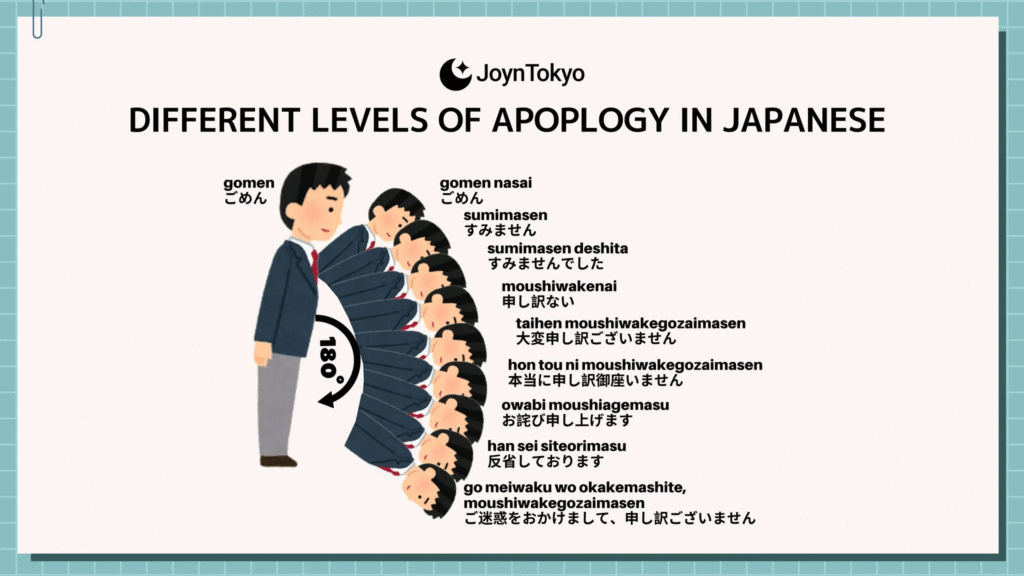
Polite interaction in Japan often relies on a single versatile word: sumimasen. This phrase can mean “excuse me,” “sorry,” or even “thank you,” depending on tone. Because it softens interactions and shows humility, it is one of the most common phrases foreigners hear and should learn early.
Casual phrase:
Gomen (ごめん) — Sorry (informal, used with friends)
Polite phrase:
Sumimasen (すみません) — Excuse me / I’m sorry / Thank you
Read More
Useful Phrases for Ordering Food in Japan
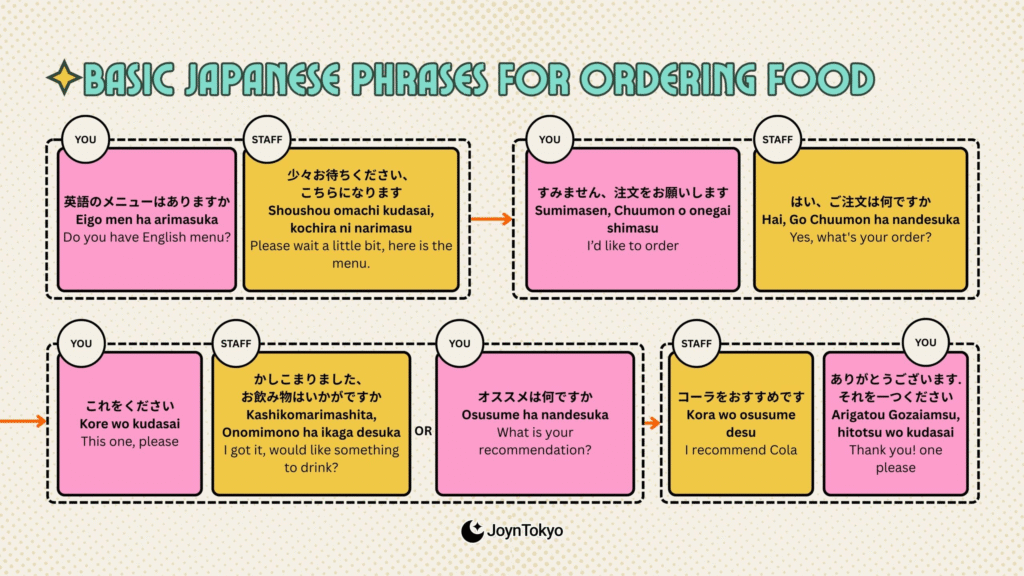
Ordering food in Japan becomes much easier once you know a few set phrases. Even simple expressions can make a big difference, showing respect to staff and making the experience smoother. Whether you are pointing at a dish or requesting the bill, the right wording communicates both politeness and confidence.
Casual phrase:
Kore kudasai (これください) — This please
Polite phrase:
Osusume o onegaishimasu (お勧めをお願いします) — I’ll have your recommendation, please
Read More
How to Apologize in Japanese Politely

Apologizing in Japan carries a cultural weight that goes beyond simple words. It can maintain harmony, smooth over mistakes, and show respect for others. From everyday slip-ups to serious situations, choosing the right form signals how sincerely you regret the situation.
Casual phrase:
Gomen nasai (ごめんなさい) — I’m sorry
Polite phrase:
Moushiwake arimasen (申し訳ありません) — I deeply apologize
Read More
Popular Japanese Phrases from Anime
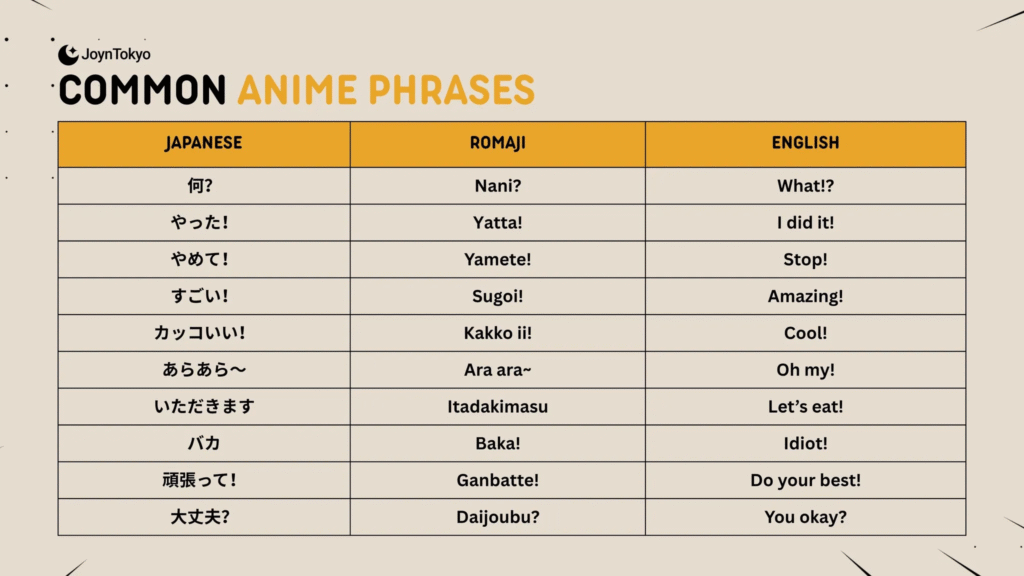
Expressions popularized in anime often stick in the minds of learners. Some are playful, others dramatic, but they reflect cultural aspects of speech that go beyond textbooks. While not all are suitable for real-life use, they give insight into how Japanese can sound in informal or exaggerated settings.
Casual phrase:
Yatta! (やった!) — I did it!
Polite phrase:
Itadakimasu (いただきます) — Said politely before eating
Read More
Japanese Slang Words and Everyday Expressions
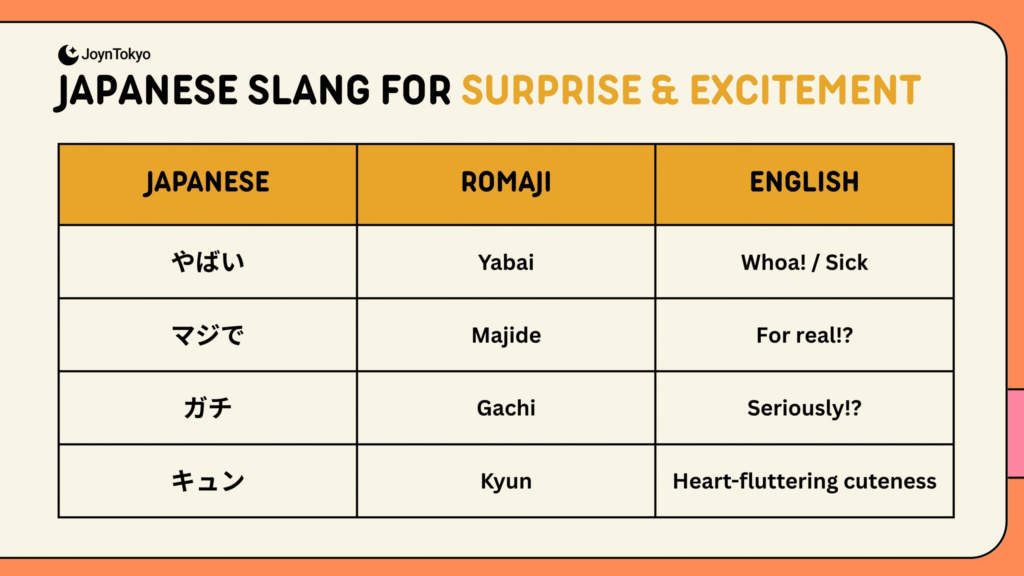
Japanese slang expressions shift quickly with trends, especially among young people. Some words carry multiple meanings, and context decides whether something sounds cool, shocking, or casual. Learning these phrases is useful not just for speaking, but also for understanding media, music, and everyday conversations.
Casual phrase:
Yabai (ヤバい) — Cool / crazy / dangerous (slang)
Polite phrase:
Hontou ni sugoi desu ne (本当にすごいですね) — That’s really amazing (safe alternative)
Read More
Basic Japanese Travel Phrases for Visitors
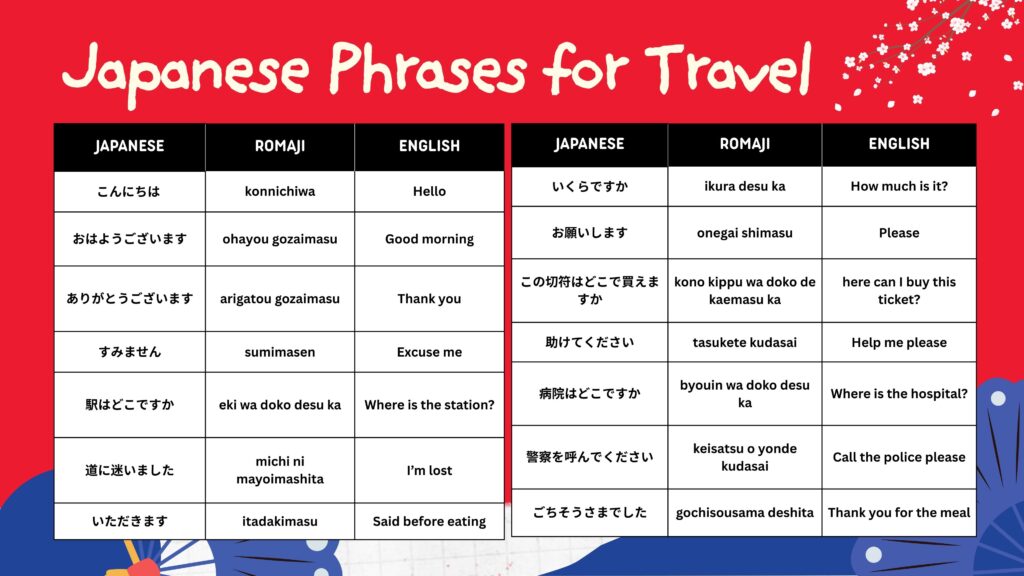
Asking simple questions when traveling in Japan can save time and create smoother interactions with locals. Greetings, requests, and polite closings help travelers show respect while getting practical help. Even a few memorized phrases make navigation, shopping, and sightseeing much more comfortable.
Casual phrase:
Toire wa doko? (トイレはどこ?) — Where’s the bathroom?
Polite phrase:
Eki wa doko desu ka? (駅はどこですか?) — Where is the station?


